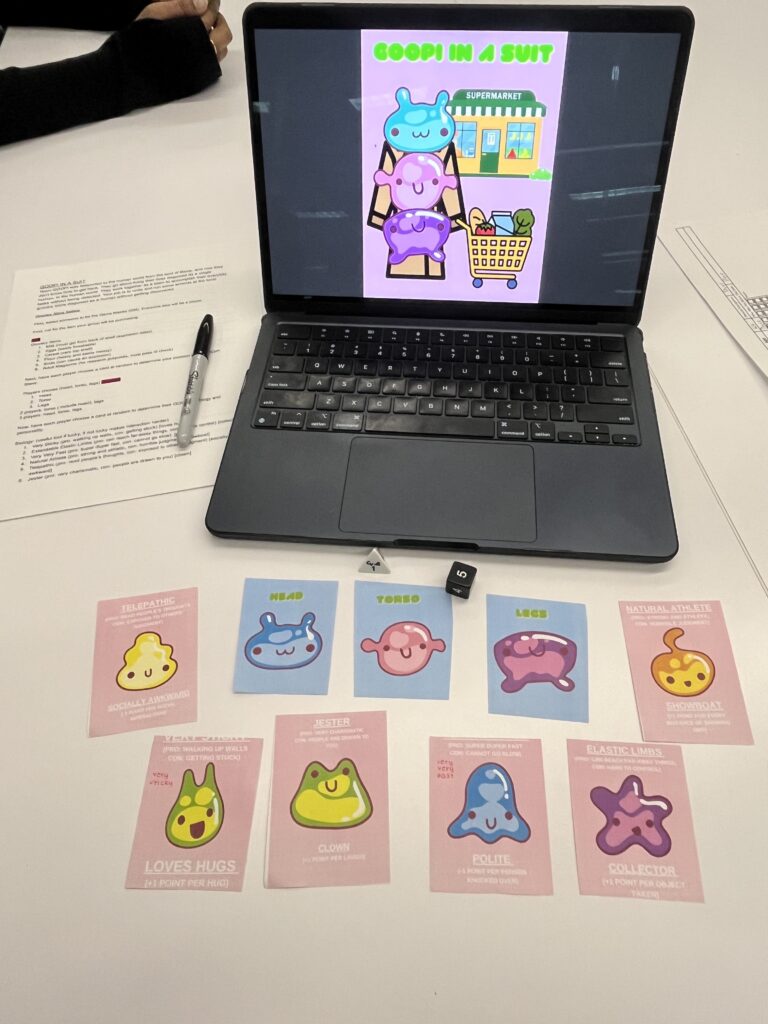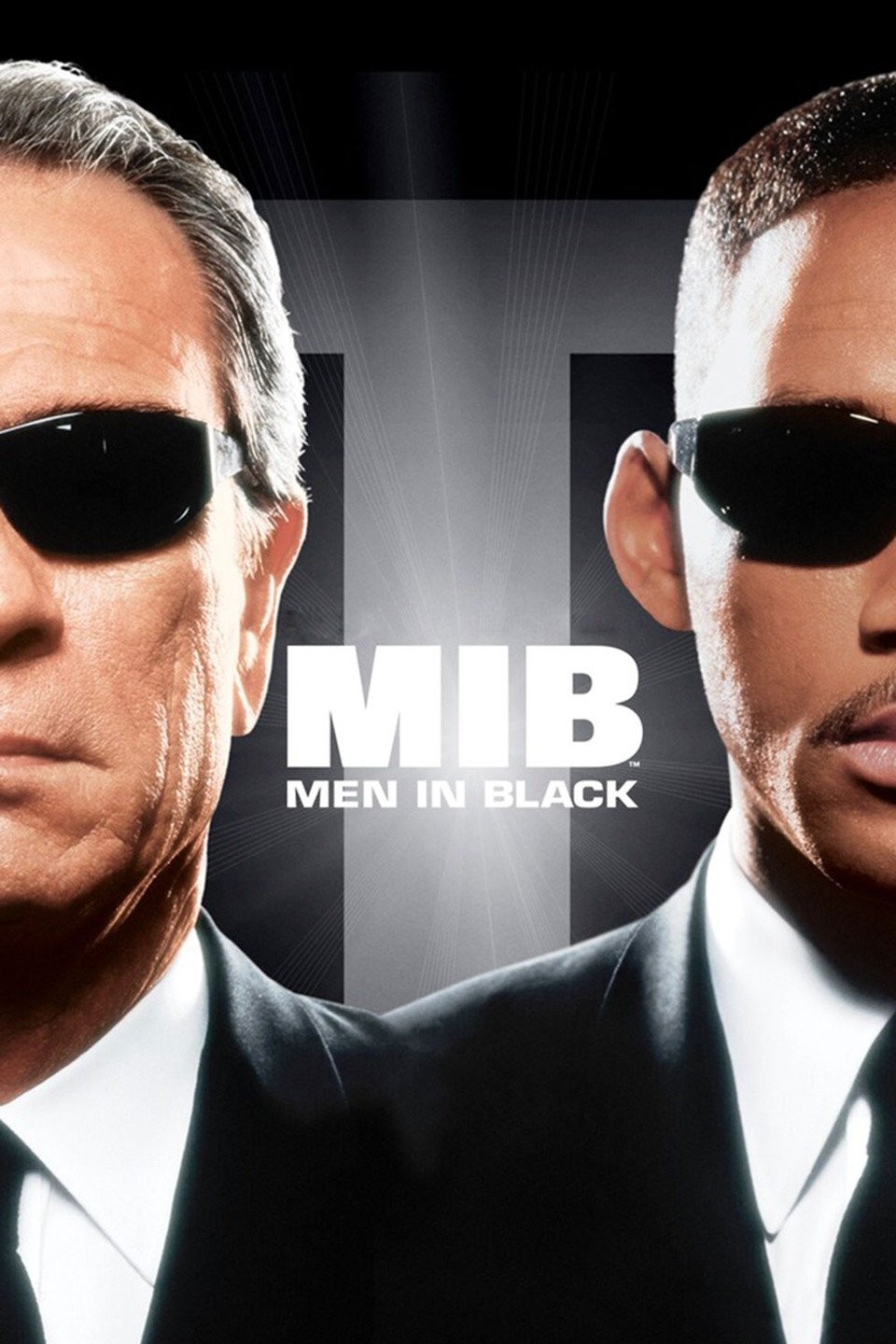We started off by meeting up to play a RPG together in order to get inspiration. We initially tried to play Thirsty Sword Lesbians, but quickly realized that the time and setup that was needed for this game was out of the temporal scope of our meeting. After perusing the MADD Center’s collection, we decided to play a game called Alice is Missing. Our intentions for the gameplay were to both gain inspiration, as well as to obtain a better familiarity with RPG setup, character development, and mechanics. For more inspiration, we also looked at some one-page RPG’s on itch.io, such as Trash Bandits and The Cafe Shop: Meaningful People.
After playing Alice Is Missing, we thought about what quality or item we wanted to include in the game. We figured that it would be easiest to choose one and theme the game around that. We decided on one of Rachel’s characters, which was an alien made out of many blobs called Goops. We liked the idea of combining fantasy with reality, so we brainstormed potential stories for the Goops that reflected this theme. We ultimately decided to have the Goops operate stacked on top of one another disguised with a trench coat, so that they could be feigned as real humans, completing tasks together and integrating personalities and skills as mechanics. Our goal was to capture the feeling of the “two/three kids in a trenchcoat” trope by having players individually control their Goops and coordinate together to complete everyday tasks. We decided to give each Goop a special biological property that both aids and hinders the Goops’ task, and a personality trait to flesh out roleplaying and create interesting group dynamics. Taking inspiration from Octodad: Dadliest Catch, we settled on the task of grocery shopping. Since grocery shopping requires all sorts of considerations, such as reaching high shelves and handling breakable items, we thought that this would be a good setting for the game. We particularly liked the way that these goals contrasted with difficult-to-control Goop tower, which facilitates emergent comedy. We came up with 6 tasks on the “grocery list” that can have a positive or negative outcome, and complications that can occur mid-scene.
Our original plot creation system took inspiration from Trash Bandits and The Cafe Shop by having players roll to determine the outcome of a scene and retroactively decide the details. However, we thought it would be more engaging to actually decide the events of the scene in real time with a GM and skill checks, similar to DND and Thirsty Sword Lesbians. To do this, we took a basic d6-based skill-check system modified from Caltrop Core and gave our game a GM. To encourage roleplaying each Goop’s personality, we gave each character some way to earn or lose arbitrary points, and encouraged players to try to maximize their personal score as much as possible without sacrificing the success of the group. For example, one of our Goops is very sticky and loves hugs, meaning the player that controls them gets 1 point per person hugged. This player will then attempt to have their character hug as many people as possible without derailing the mission, which creates chaos as difficult and wacky situations emerge from the Goops getting stuck to random strangers while also trying to hide their true identity—and make it out with their groceries.
We struggled a little bit with maintaining theming for all sets of characters, making sure that they were cohesive with each other and developed well enough, as well as making sure there was a balance between all of them. We went through several character variations, at first having a mediator character who loses a point for every point gained by another character. However, we found that this became too antagonistic; we may get rid of it completely. Similarly, we had to discard or reinvent characters that didn’t compliment the others, or caused too much disruption to the gameplay with the nature of their personality or ability.
The game engine we chose was Caltrop Core, although we have concerns about adjusting the difficulty of tasks. We are currently trying to figure out a way to either compensate for this, or come up with a related system that accommodates the changes we want to make. We are also working on polishing characters and creating a clearer rule sheet.
After the feedback session, we had three tasks to complete; come up with more GOOP! characters, and specialize them for their biological parts (i.e. head, torso, legs), come up with a clearer point system that introduced incentives and more consequences, and to worldbuild (i.e. come up with intentions for the GOOP!s and more specific lore). We have also been working on the cohesive aesthetics of the game and its pieces, with specialized character cards and rule sheets:

Our last steps are to meet one more time to consolidate all of the material, make sure everything works together, and to finalize some of the mechanics and aesthetics that still need polishing.
